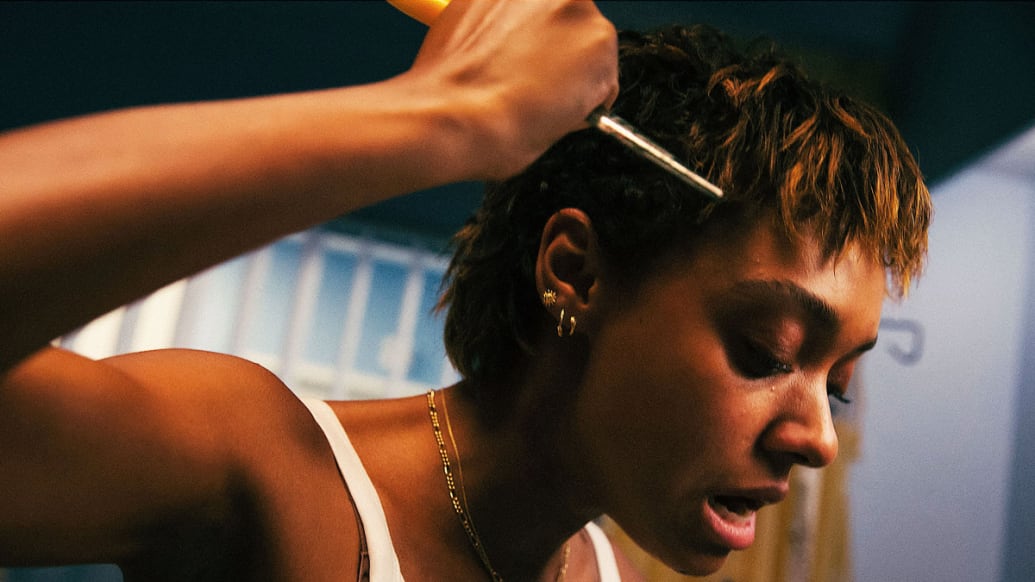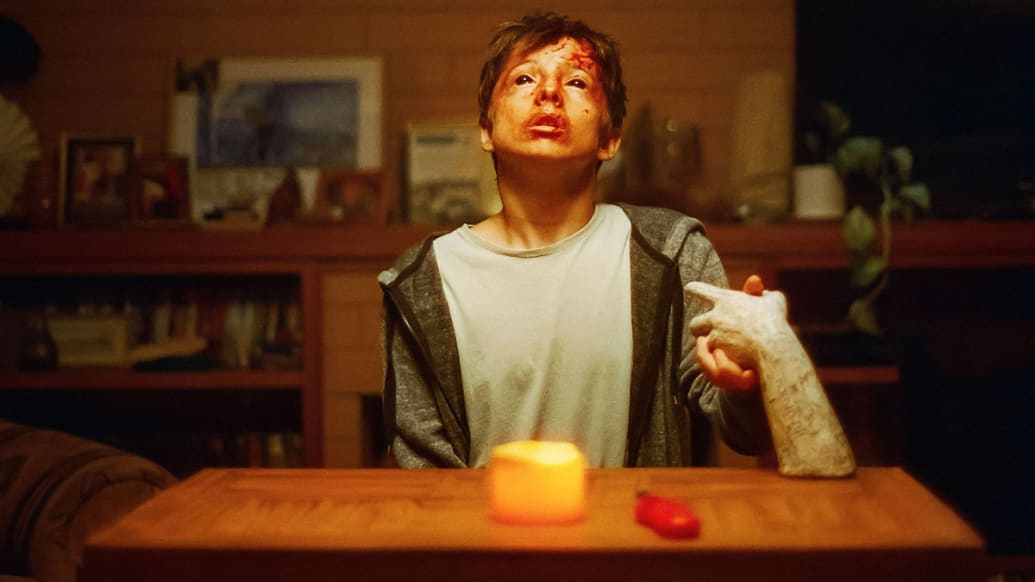The demons and devils may change but the grief stays the same—a horror cinema fact borne out by (2018) and Midsommar (2020) is despondency over dearly departed relatives. Even this year, Ted Geoghegan”s Brooklyn ’45 and Mark Jenkin’s Enys Men have cast melancholic yearning—either overtly or subtly—as a trauma that cracks open the door to the other side, as does Julius Avery’s The Pope’s Exorcist, in which Russel Crowe’s man of the cloth battles an underworld king who’s taken control of a boy still grappling with his father’s car-accident death, which he witnessed first-hand.
In many of these efforts (and their likeminded brethren), bereaved individuals respond to tragedy by seeking out a supernatural means of communicating with—if not outright resurrecting—their loved ones. Ancient burial grounds, mediums and seances are all tools to be employed in service of reunion. In that regard too, Talk to Me is of a piece with its predecessors. Danny and Michael Philippou’s film concentrates on Mia (Sophie Wilde), an Australian teenager who’s estranged from her father and trying to process her mother’s fatal sleeping-pill overdose. She finds comfort, community, and thrills courtesy of a severed corpse hand that her classmates own, and which—when grasped during a ceremony involving a lit candle and the magic words, “Talk to me” and “I let you in”—allows the living to temporarily see, converse with, and become possessed by the dead.
That Mia will get more than she bargained for via this pastime is no surprise, but the Philippou brothers’ feature debut nonetheless mines her foolishness, and the anguish that instigated it, for solid frights. Central to Talk to Me’s success is its signature appendage, which is encased in plaster and covered in writing, and which perfectly encapsulates—visually, and functionally—the desire to reach out and grasp that which has been lost.
Just as important, however, is the directors’ use of said hand to put a new twist on traditional ritualistic-communion craziness. Employed as a late-night parlor trick fit for teens’ TikToks, the limb is an ideal vehicle for contemporary juvenile entertainment. Conjuring a believable atmosphere of high-school anxiety, peer pressure and pain, the film smartly posits the hand as irresistible precisely because of its viral-video appeal.

Talk to Me’s madness truly manifests itself when Riley (Joe Bird), the younger brother of Mia’s best friend and surrogate sister Jade (Alexandra Jensen), has a go with the hand, and appears to be taken over by the spirit of Mia’s deceased mother—thereby convincing Mia that she can bridge the chasm between here and there. As with so many of her horror ancestors, Mia is drawn by her grief to meddle with a hereafter about which she knows little, and which is full of specters hungry for life (a well-known idea also exploited by Insidious: The Red Door). The resultant bedlam is thus one of her own depression’s making, and it peaks with a late vision of Richie’s torture that’s unforgettably bleak and cruel.
There’s plenty that disturbs and repulses in Talk to Me, including a creepy foot-sucking encounter between a slumbering boy and a decrepit, smudge-faced ghoul. In those and other instances, the Philippou brothers’ maiden directorial venture carves out its own modern malevolent path. Yet by casting its present-day nastiness as an outgrowth of tried-and-true sorrow, it simultaneously aligns itself with the numerous hallowed nightmares that have come before it—making it a work that, like its story, expertly straddles the line between two conjoined worlds.
Keep obsessing! Sign up for the Daily Beast’s Obsessed newsletter and follow us on Facebook, Twitter, Instagram and TikTok.










